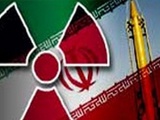|
|
TODAY.AZ / World news
Iran urged to submit 'updated' nuclear swap proposal
04 February 2010 [14:32] - TODAY.AZ
The West has urged Iran to submit a formal offer to the UN nuclear watchdog after the Iranian president said his government was ready to negotiate over a fuel swap deal.
 Under a deal backed by the International Atomic Energy Agency (IAEA), Tehran would send most of its domestically-produced low enriched uranium (LEU) abroad for further enrichment.
Under a deal backed by the International Atomic Energy Agency (IAEA), Tehran would send most of its domestically-produced low enriched uranium (LEU) abroad for further enrichment.The 20 percent enriched uranium then would be used to fuel the Tehran research reactor that produces medical isotopes for cancer patients.
Iran had earlier called for the swap deal to take place on its own soil, arguing that if it ships the bulk of its enriched uranium, there will be no guarantee that the fuel would eventually reach the country.
However, Iranian President Mahmoud Ahmadinejad said on Tuesday that the country would have "no problem" sending out its stock of LEU to be further refined into nuclear fuel for the research reactor in Tehran.
"Even if we sent our 3.5 percent [enriched] fuel abroad, it would cause no problem," Ahmadinejad said, adding that the controversy about the nuclear swap deal was unnecessary.
"Inside [the country], some said that if we send our nuclear fuel abroad, they (the West) will not give us enriched fuel," but if the suppliers renege on providing nuclear fuel to Iran, it will prove that the countries which signed the nuclear swap deal are not reliable, he noted.
The president reiterated that Iran, under the Nuclear Non-Proliferation Treaty, is entitled to enrich uranium for civilian purposes and if the sides cannot agree on a deal, the country would be left with no choice but to domestically produce the fuel.
Following president Ahmadinejad's remarks, Western countries demanded that Iran submit a formal proposal to the IAEA over the deal.
"If Mr. Ahmadinejad's comments reflect an updated Iranian position, we look forward to Iran informing the IAEA," spokesman for the US National Security Council Mike Hammer said.
German Foreign Minister Guido Westerwelle told journalists that "if there is a new approach, Iran has to submit its proposals to the IAEA in Vienna, then the international community can evaluate them."
French Foreign Minister Bernard Kouchner said he was "pessimistic" about the remarks and added that he believed Iran was "trying to buy time."
Russia and Britain, however, said that they would welcome Iran's readiness to accept the proposal as a "positive sign."
China also underlined the 'urgent' need for the continuation of talks over the Iranian nuclear issue.
"We need to try and find a solution as quickly as possible through negotiations," Chinese Foreign Minister Yang Jiechi said on Wednesday.
/Press TV/
URL: http://www.today.az/news/regions/60834.html
 Print version
Print version
Views: 2306
Connect with us. Get latest news and updates.
See Also
- 08 February 2026 [23:36]
Coca-Cola signs new football partnership with Irish FA and NIFL - 08 February 2026 [20:43]
Iran warns of unexploded bombs at nuclear sites hit by US strikes - 08 February 2026 [20:18]
Syrian Red Crescent volunteer killed during flood rescue in north-west Syria - 08 February 2026 [19:21]
Pakistan arrests suspects linked to deadly Isis mosque bombing in Islamabad - 08 February 2026 [18:22]
Netanyahu to meet Trump after Iran–US nuclear talks in Oman reach impasse - 08 February 2026 [16:10]
Ukraine imposes new sanctions targeting Russia’s defence and financial networks - 08 February 2026 [15:19]
South Africa plans exit from UN mission in Congo, citing military realignment - 08 February 2026 [14:24]
Muscat talks expose depth of Iran–US divide after 2025 escalation - 08 February 2026 [12:11]
Syria arrests security officer after deadly shooting in Suwayda countryside - 08 February 2026 [09:00]
Trump, Netanyahu to meet in Washington DC on Wednesday
Most Popular
 Epstein files blur fact and fiction with shocking Biden ‘replacement’ claim
Epstein files blur fact and fiction with shocking Biden ‘replacement’ claim
 Zelenskyy claims US gave Ukraine and Russia a deadline to reach peace agreement
Zelenskyy claims US gave Ukraine and Russia a deadline to reach peace agreement
 President Ilham Aliyev receives delegation led by Iranian Minister of Defense and Armed Forces
President Ilham Aliyev receives delegation led by Iranian Minister of Defense and Armed Forces
 Int'l Mugham Center holds magnificent concert
Int'l Mugham Center holds magnificent concert
 Epstein files expose deeper ties with global scientific elite
Epstein files expose deeper ties with global scientific elite
 Azerbaijan National Carpet Museum opens ‘Silent Prayers’ Exhibition
Azerbaijan National Carpet Museum opens ‘Silent Prayers’ Exhibition
 Gilavar Photo Club launches 'My Urban World' Int'l Photography Competition
Gilavar Photo Club launches 'My Urban World' Int'l Photography Competition
